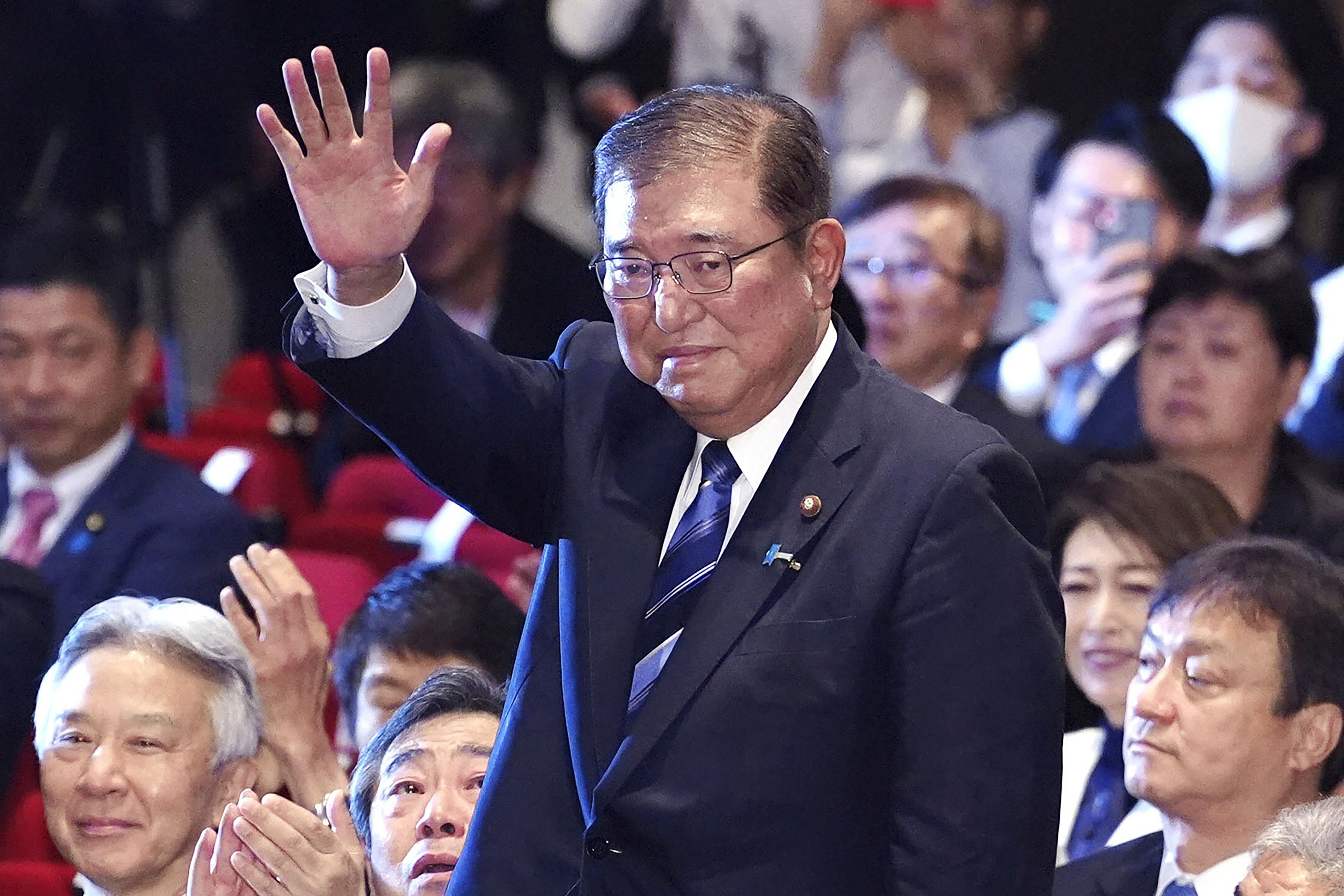Japan’s new prime minister Shigeru Ishiba to call snap election as he seeks to turn round party’s fortunes
Election set to take place a year ahead of schedule and just days before the US presidential vote

Your support helps us to tell the story
From reproductive rights to climate change to Big Tech, The Independent is on the ground when the story is developing. Whether it's investigating the financials of Elon Musk's pro-Trump PAC or producing our latest documentary, 'The A Word', which shines a light on the American women fighting for reproductive rights, we know how important it is to parse out the facts from the messaging.
At such a critical moment in US history, we need reporters on the ground. Your donation allows us to keep sending journalists to speak to both sides of the story.
The Independent is trusted by Americans across the entire political spectrum. And unlike many other quality news outlets, we choose not to lock Americans out of our reporting and analysis with paywalls. We believe quality journalism should be available to everyone, paid for by those who can afford it.
Your support makes all the difference.Japan’s incoming prime minister, Shigeru Ishiba, says he will call a snap election on 27 October – a full year ahead of schedule and just weeks after winning the leadership of the ruling Liberal Democratic Party (LDP).
“I believe it’s important for the new administration to be judged by the people as soon as possible,” Mr Ishiba said during a news conference on Monday in which he also named some of his first cabinet appointments.
The election date is not yet official as Mr Ishiba has not formally entered office – he is expected to do so on Tuesday when Fumio Kishida resigns to hand over the reins after just over three years in power.
Mr Ishiba, a moderate and former defence minister, won the ruling LDP presidential election at his fifth and final attempt last week, defeating economic security minister Sanae Takaichi in a runoff vote.
The early election is seen as an effort to capitalise on the momentum of his victory in the party leadership race and turn around the fortunes of the LDP, which had been steadily sliding in opinion polls before Mr Kishida declared his decision to step aside. It will also give the opposition limited time to prepare and – if he is victorious – give Mr Ishiba his own mandate as prime minister.
The election, set to take place a year ahead of schedule and just before the US presidential election on 5 November, will determine which party controls the lower house of parliament.
Mr Ishiba mentioned his proposed election date on Monday during a press conference, saying he wanted to balance giving enough time for organisers with the need to hold the vote “the sooner, the better”. “I want to ensure that we provide the necessary materials for voters to make a judgment,” he said.
According to Reuters, Japanese shares dropped over 4 per cent in early Monday trading as the yen surged and government bonds rose in response to Mr Ishiba’s leadership victory, given his reputation as a monetary policy hawk.
Mr Ishiba began selecting government and party officials to join him in contesting the upcoming general election. So far, his picks include two former rivals from the leadership race: Katsunobu Kato as finance minister and Yoshimasa Hayashi, who will remain as chief cabinet secretary — a key role that includes acting as the government’s top spokesperson.

An Ishiba ally, Takeshi Iwaya – a former defence chief – will become foreign minister, while Gen Nakatani is set to return as defence minister, a position he held in 2016. Yoji Muto, a former junior minister, is expected to lead the economy, trade, and industry ministry.
Absent from Mr Ishiba’s expected picks is Ms Takaichi, his rival in the run-off. The Kyodo news agency reported that she declined an offer of a senior party position.
On Friday Mr Ishiba won the party’s leadership with 215 votes – 189 from LDP lawmakers and 26 from local chapters – compared to 194 votes for Ms Takaichi, who would have become the first female prime minister in Japanese history if she had won.
During his campaign, Mr Ishiba proposed forming an “Asian Nato”, a controversial idea that could provoke Beijing and was described as premature by a senior US official.
Mr Ishiba faces the urgent task of revitalising the LDP’s image, which has suffered due to a political funding scandal linked to party factions.
Join our commenting forum
Join thought-provoking conversations, follow other Independent readers and see their replies
Comments